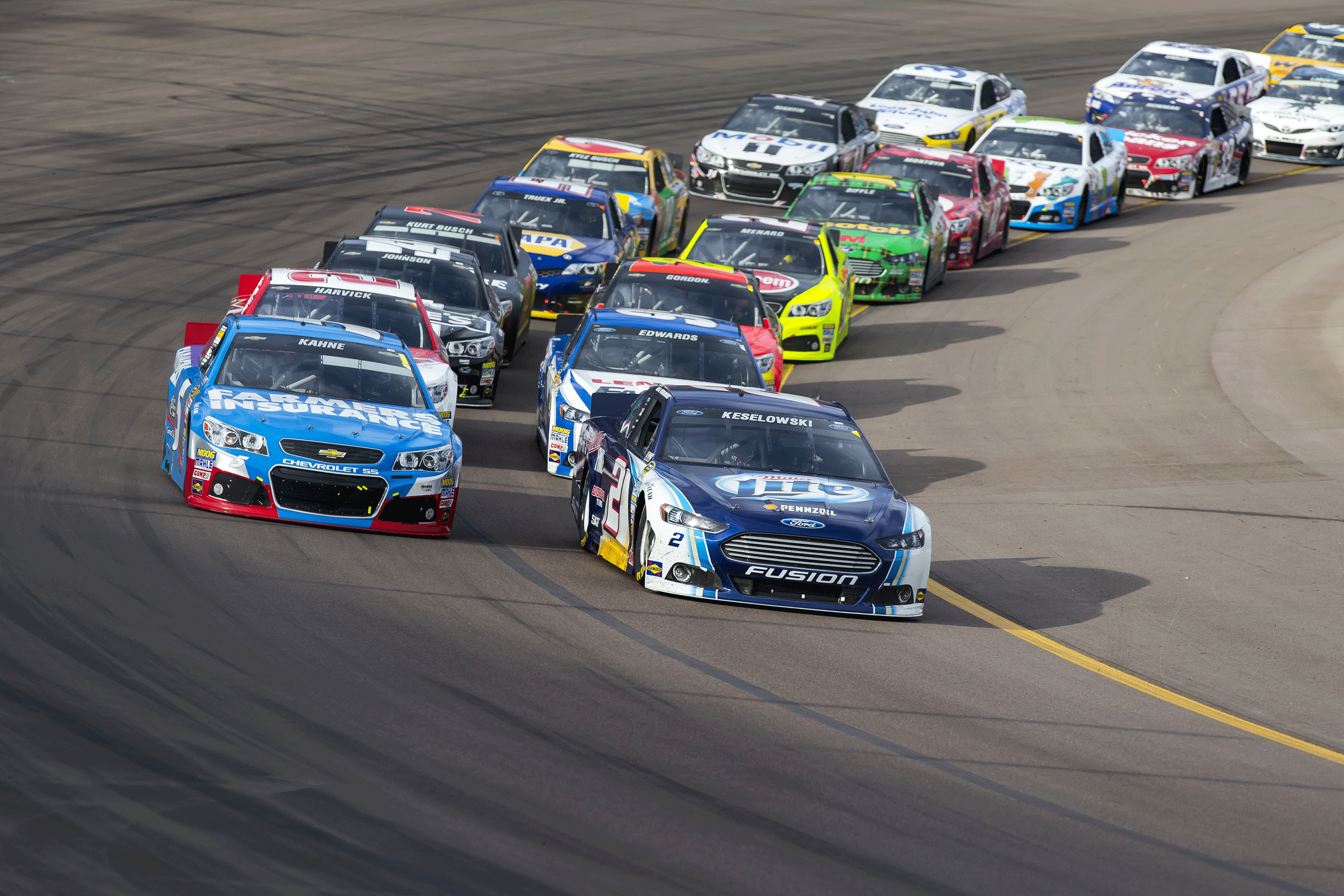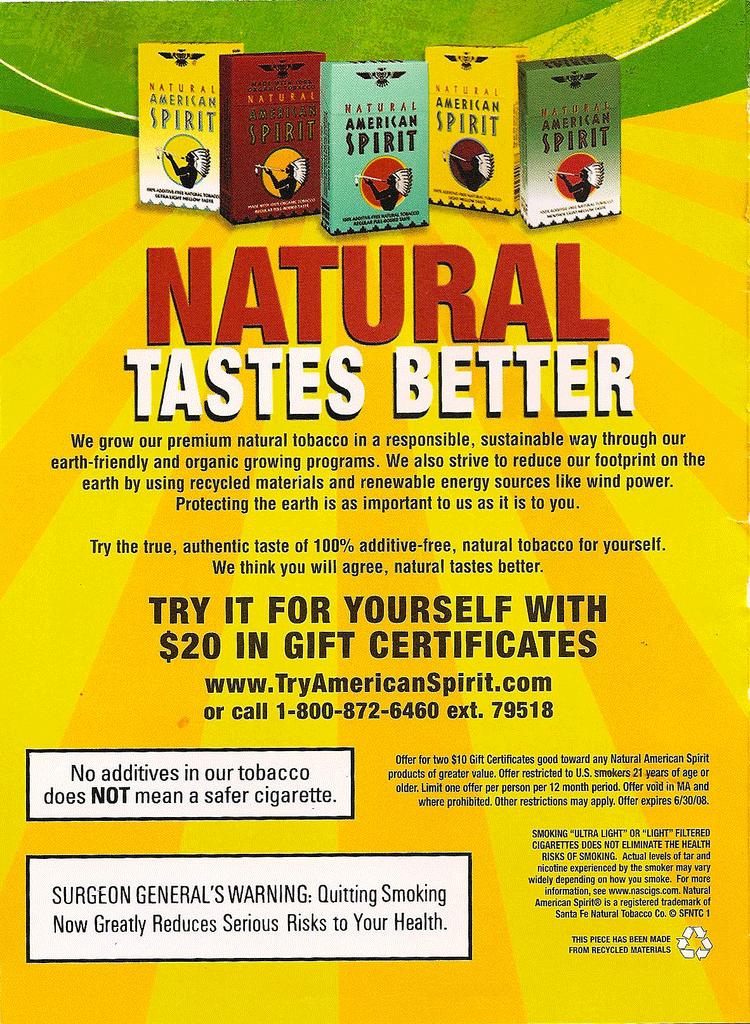Beyond the Headlines
Air Date: Week of March 28, 2014

NASCAR claims to have a carbon-neutral race (photo: bigstockphoto.com)
In this week’s trip beyond the headlines, Peter Dykstra tells host Steve Curwood three stories that sound like April Fool's jokes, but are 100% true.
Transcript
CURWOOD: Well, the mockingbird sounds a particularly appropriate note for our trip beyond the headlines today with Peter Dykstra. He's the publisher of Daily Climate.org and Environmental Health News - EHN.org. - and joins us on the line from Conyers, Georgia. Hi there, Peter.
DYKSTRA: Hi Steve. You know, it’s a grand time of year for folks like me because April Fools’ Day is upon us, and one of the best parts of April Fools Day are those things that sound like hoaxes and pranks, but they turn out to be true. So remember, everything I’m about to tell you actually happened.
CURWOOD: Even if it sounds like it didn’t, huh?
DYKSTRA: Right. One of my favorites happened six years ago, when NASCAR went carbon neutral. Back in 2008, they designated one single Saturday race as contributing no net gain of carbon dioxide into the atmosphere because they paid a conservation group to plant 4,200 carbon-eating trees.
CURWOOD: And they said that offset the NASCAR race?
DYKSTRA: Not just the NASCAR race, but the 100,000 plus spectators who came to the race. All that, they said, can be neutralized by planting what amounts to six acres worth of forest. But there’s a little math problem here. The Michigan International Speedway, where this carbon neutral race occurred - if you take the grandstand, the track, the infield, the parking lot - it’s 1,100 acres of what at one time was a forest.
CURWOOD: Yes, you’re right about the math problem here. I’m trying to figure this out. Let’s see...one green race a year...six acres...so they could reforest an area the size of the racetrack in about 250 years.
DYKSTRA: Ah, close. It would actually be 233 years, so they’d be all done by the year 2247.

American Spirit sells Organic cigarettes (photo: Flickr user ATIS547, creative commons 2.0)
CURWOOD: Now, Peter, you’re not saying that carbon offsets are a bad thing, are you?
DYKSTRA: No, not at all. Carbon offsets, when they’re practiced regularly, when they’re practiced on a widespread basis, can be a major part of dealing with climate change, but you don’t get to claim credit for a bright green glow just by planting six acres’ worth of trees, once. Sometimes, embracing a term like “carbon neutral” or carbon offsets can be empty gestures that do more for your marketing department than it does to help your planet.
CURWOOD: What’s up next?
DYKSTRA: This one’s been around for about 20 years, but it never ceases to amazes me. The American Spirit Tobacco has a special marketing niche of its own – they sell organic tobacco that is free of pesticides.
CURWOOD: But it’s still tobacco…
DYKSTRA: It’s still tobacco, and not only does it carry the standard Surgeon General’s warning, but their website also has another warning that reads, “No additives in our tobacco does NOT mean a safer cigarette.”
CURWOOD: So you can still get cancer from pesticide-free cigarettes, but thank heavens it won’t be from the pesticides.
DYKSTRA: Yeah, it’s like saying, “Just shoot me. But please don’t use lead shot.”
CURWOOD: OK. What about one more?
DYKSTRA: Well this one’s also an oldie-but-goodie, it comes from 1990. It’s one of the first occasions when global governments got together to discuss and plan for climate change. One of the U.S. delegates was Julian R. Spradley, he was an attorney and lobbyist. Mr. Spradley got into a discussion with the Bangladeshi delegation, who had somehow gotten the impression that the United States wasn’t taking climate change seriously enough, so Mr. Spradley summoned up his best diplomatic instincts to calm the Bangladeshis’ fears about climate change. He said, as quoted by the Washington Post:
“The situation is not a disaster, it is merely a change. The area won't have disappeared, it will just be underwater. Where you now have cows, you will have fish.”
CURWOOD: Well, I’m sure he thought that was fine with the 150 million plus Bangladeshis. And Peter, you’re promising us that all these things really did happen?
DYKSTRA: Yes. As James Thurber said, you can look it up.
CURWOOD: Well, you can look all of this up on our website, that’s LOE.org. Peter Dykstra is publisher of the Environmental Health News and the DailyClimate.org. Thanks so much, Peter.
DYKSTRA: Thanks a lot, Steve. Talk to you soon.
Links
Read the original story of Julian Spradley’s comments before the Bangladeshi climate delegation here
Living on Earth wants to hear from you!
Living on Earth
62 Calef Highway, Suite 212
Lee, NH 03861
Telephone: 617-287-4121
E-mail: comments@loe.org
Newsletter [Click here]
Donate to Living on Earth!
Living on Earth is an independent media program and relies entirely on contributions from listeners and institutions supporting public service. Please donate now to preserve an independent environmental voice.
NewsletterLiving on Earth offers a weekly delivery of the show's rundown to your mailbox. Sign up for our newsletter today!
 Sailors For The Sea: Be the change you want to sea.
Sailors For The Sea: Be the change you want to sea.
 The Grantham Foundation for the Protection of the Environment: Committed to protecting and improving the health of the global environment.
The Grantham Foundation for the Protection of the Environment: Committed to protecting and improving the health of the global environment.
 Contribute to Living on Earth and receive, as our gift to you, an archival print of one of Mark Seth Lender's extraordinary wildlife photographs. Follow the link to see Mark's current collection of photographs.
Contribute to Living on Earth and receive, as our gift to you, an archival print of one of Mark Seth Lender's extraordinary wildlife photographs. Follow the link to see Mark's current collection of photographs.
 Buy a signed copy of Mark Seth Lender's book Smeagull the Seagull & support Living on Earth
Buy a signed copy of Mark Seth Lender's book Smeagull the Seagull & support Living on Earth

